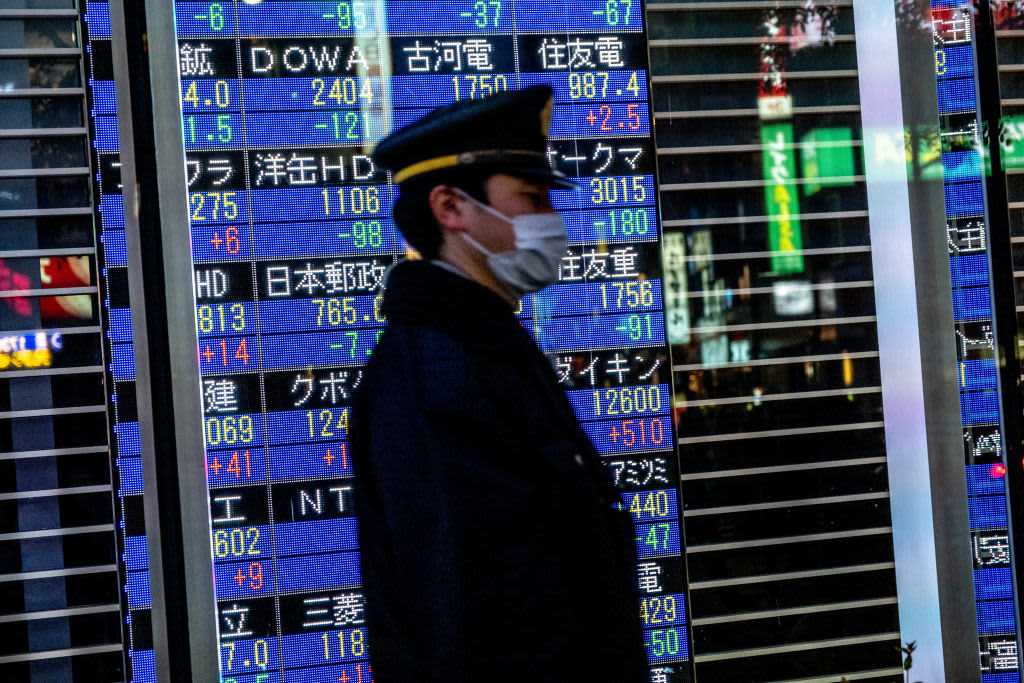
Asia Pacific markets traded mostly higher on Friday but investors remained cautious after U.S. lawmakers seemed unable to move forward with a coronavirus stimulus bill.
Australia's ASX 200 rose 0.45% but the heavily-weighted financials subindex retreated 0.19%. Shares of major banks in the country were mostly up but Commonwealth Bank shares declined 1.38%.
The major lender earlier this week reported full-year results for the financial year that ended in June. Its cash net profit after tax from continuing operations fell 11.3% from a year ago, largely from bad loan provisions due to Covid-19.
In Japan, the Nikkei 225 added 0.12% while the Topix index was up 0.18%. South Korea's Kospi index, however, declined 1.21% and Hong Kong's Hang Seng index traded near flat.
Chinese mainland shares rose: The Shanghai composite was up 0.11%, the Shenzhen component index added 0.81% and the Shenzhen composite was up 0.58%.
The session in Asia followed a mixed finish on Wall Street overnight where the S&P 500 failed once again to reach its record high from February. That was despite positive U.S. jobless claim data that came in well below what economists predicted, implying that the U.S. labor market was starting to improve.
"We warned of 'inflated optimism' yesterday, and some caution has come to roost," Vishnu Varathan, head of economics and strategy in the Asia and Oceania treasury department at Mizuho Bank, wrote in a Friday morning note.
"But this caution is a far cry from 'risk off' proper. In fact, it appears almost unfazed in the context of US fiscal stimulus impasse stuck in limbo till resumption of Senate," he added.
Lawmakers in the United States appear to be at an impasse over the next round of coronavirus aid and an agreement on legislation and passage of a bill looks to be weeks away.
U.S. House Speaker Nancy Pelosi has said she will not restart talks with Republicans on the matter until they increase their aid offer by $1 trillion. White House economic advisor Larry Kudlow also told CNBC's "Squawk on the Street" that the administration and Democrats were at a "stalemate."
Officials from Washington and Beijing are also reportedly set to review progress of their "phase one" trade deal later this week, roughly six months after the agreement came into effect.
The relationship between the U.S. and China has considerably deteriorated in recent weeks after President Donald Trump issued executive orders against Chinese tech giant Tencent and TikTok-owner ByteDance. That followed U.S. sanctions on 11 individuals including Hong Kong leader Carrie Lam and retaliatory moves from Beijing, which imposed sanctions on 11 U.S. citizens that included legislators.
This week's reported meeting is "far more than a check-box exercise," Varathan said. "It is a litmus test for how extreme the US-China conflict may get ahead of US Presidential elections."
He explained it could provide "a glimpse into the distinction between abrasive pre-elections posturing and an uncompromising approach to taking China to task."
Currencies and oil
The U.S. dollar traded lower against a basket of its peers as the dollar index fell 0.07% to 93.269.
Elsewhere, the Japanese yen changed hands at 106.93 against the greenback, near flat from its previous close, and the Australian dollar fell 0.14% to $0.7138.
Oil prices traded higher during Asian hours on Friday. U.S. crude was up 0.17% at $42.31 per barrel while global benchmark Brent rose 0.2% to $45.05.
— CNBC's Fred Imbert contributed to this report.
"asia" - Google News
August 14, 2020 at 07:05AM
https://ift.tt/30UaAPN
Asia trades mostly higher but investors remain cautious after stalled U.S. stimulus talks - CNBC
"asia" - Google News
https://ift.tt/2YpEquI
https://ift.tt/2WkdbyX
Bagikan Berita Ini














0 Response to "Asia trades mostly higher but investors remain cautious after stalled U.S. stimulus talks - CNBC"
Post a Comment